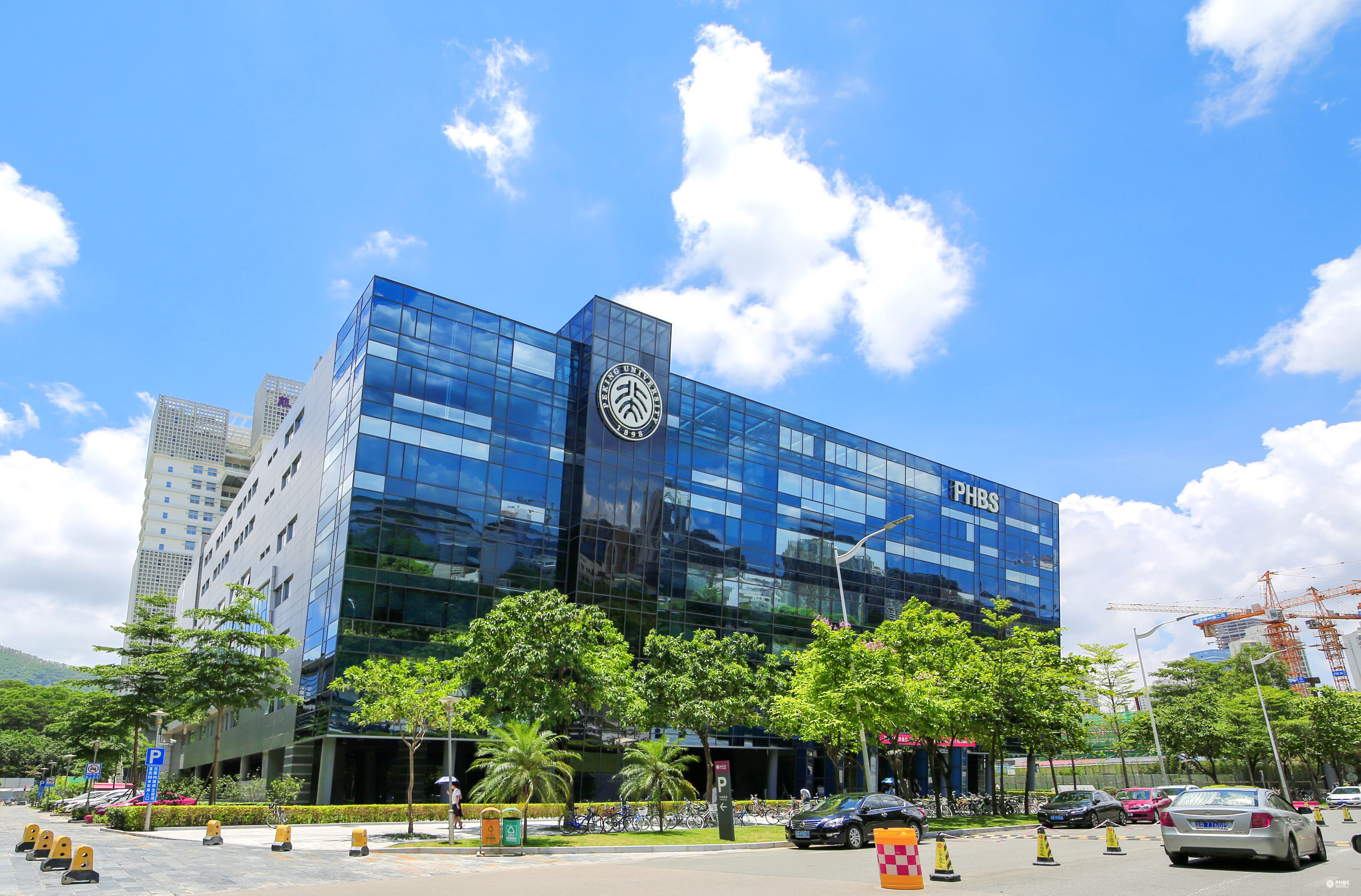In August 2018, Peking University HSBC Business School (PHBS) has earned accreditation from AACSB International – The Association to Advance Collegiate Schools of Business (AACSB), one of the world’s leading business school accreditation organizations. PHBS is proud to be among an elite 5% of over 16,000 business schools and colleges in the world to hold the esteemed accreditation. For knowing more details about this accreditation, here are some contents excerpted from PHBS executive summary.
1. Mission Implication and Impact
As the Peking University HSBC Business School mission stated:
“PHBS is committed to:
1) Engaging PHBS research community in providing cutting-edge knowledge;
2) Contributing to the development of local and global economy;
3) Educating students to think critically, innovatively, and act responsibly;
4) Cultivating leaders with attributes of vision, principle, and diversity for China and the world.”
2. Self-Assessed Strength and Weakness
(What’s our strength?)
PHBS is a young school with high ambition, its weakness and strength are quite obvious.
Strength
1) PKU brand: recognition, connection, and resources;
2) sustainable finance;
3) opportunity of development in Shenzhen (start-up atmosphere, leading firms, innovative city, government policy advantages, finance hub, advanced ICT industry);
4) academic and policy research resources: hardware support, local government support, Sargent Institute of Quantitative Economics, Finance and Research Institute of Maritime Silk-Road;
5) great innovative development as young school, abundant possibilities;
6) productive and energetic faculty;
7) excellent students;
8) extended reach into the UK market
3. Best Practices for the Operation of the School and Continuous Improvement
(Why can we stand out?)
Smooth operation and steady progress relies on smart choice of strategy and the right way of doing things. Reflecting back to the process of PHBS development, we may identify the following “best practices” or good moves that contribute to the achievement of the school:
1) Aiming high. PHBS has a vision of building the best business school, not just aiming at national best peers, but exploring the potential of competing with international leaders
2) International focus. PHBS started the program using English as working language and attracted considerate number of foreign faculties; pursuing international accreditation (AACSB & EFMD) from early stage (enabling an initiative for self-reviewing). PHBS recruit large number of international faculty and international students.
3) Blending-in and reaching-out strategy. PHBS managed to host impactful academic and professional events and make PHBS name known not juts within the local community but also the broader academic society. PHBS invited numerous influential academic figures and professional figures, broaden the network of school. PHBS established important centers to create interdisciplinary research context and extending school connection.
4) Generous support for research activities. PHBS set aside generous budget for academic research related expenses such as purchasing Bloomberg platform, WRDS platform, CRSP data, Compustat data, Wind data, etc. It also subscribes to major business journals such as the Wall Street Journal Financial Times, the Economist, etc. PHBS provides a full functioning financial lab to facilitate research. It establish case center.
5) Determination and execution. PHBS did not hesitate in probing the world for more innovative means of development (English teaching; Fintech program; UK campus, etc.)

4. What’s our achievements over the past five years?
Guided by this school mission, the school has achieved impact in terms of student training, faculty research and community involvement. The impact can be evidenced in the following aspect:
Sustainable finance
PHBS income has several steady sources including (mainly):1) tuitions from the degree programs (MA, MBA, and EMBA); 2) income from the non-degree executive training program (i.e., EDP program); 3) additional income from external endowment, HSBC supports, PHBS development foundation, and net assets.
Enhancing and enriching the faculty group
As a continuous effort of recruitment, starting from 2016/2017 academic year, we have 9 new recruits, among which 3 are senior members with rich experiences in Finance and Management practices and research.
The school provides hardware and soft support to facilitate faculty development. In the meantime, the school is sending junior faculty out to participate in the MBA teaching Training sessions sponsored by the Chinese MBA Teaching Committee, which takes place every year and for dedicated areas of subjects. Junior faculty is also participating in the CEIBS case teaching workshops. The school has new subscription to the HBS cases, and in the meantime, cooperating with IVEY case company, the school is seeking training for the faculty in terms of writing business cases and teaching notes and case teaching in the classroom. The new Case Center offer a valuable source for faculty to participating in developing cases, utilizing case teaching facility in VR/AR form.
The school set up two new centers: Sargent Institute of Quantitative Economics and Finance (SIQEF, providing PHBS faculty with more research opportunities to work with leading scholars in the field of quantitative economic s and finance) and Research Institute of Maritime Silk-Road (RIMS, following the national “Belt and Road” strategic initiative and create a national scholarly think tank.)
Improving the impact of the school through faculty research and projects
The overall number of scholarly and practitioner research for the past 5 years is about 1799 for the three major disciplines. The number of peer review journal articles has largely increased (190, including management: 81; finance: 56.5; economics: 52.5). The faculty published in top journals such as Journal of Monetary Economics, Journal of Corporate Finance, Strategic Management Journal, Harvard Business Review, Long Range Planning, Management Sciences, and etc. And the academic and practical contributions of the school is impacting the local and international academic and practical communities more and more (evidenced by academic award (13), invited media exposures (107), successful events held, projects/grants (53; USD 2,289,643), books (39), and etc.
An example list of project sponsors includes: State Administration of Taxation; Department of Market Supervision of the Ministry of Commerce; Shenzhen Municipal Government Development Research Centre; Shenzhen Chamber of Commerce; Department of Financial Affairs of Nanning Government Bank of China Shenzhen Branch; HUAWEI Technology Co., Ltd., and etc.
Placing students in competitive industry jobs
Placement for all degree program students is satisfactory. Most of MA students were able to enter major domestic and multinational firms. Some graduates seek to pursue further academic training; they’ve entered very high quality doctoral programs. Some examples of student placement include: the four major state-owned commercial banks, many important provincial banks, major international commercial banks such as CITI Group, government agents such as State Administration of Foreign Exchange, General Office of the State Council, China’s National Development and Reform Commission, China Banking Regulatory Commission, major consulting companies or major investment banks such as Deloitte, BCG, PWC, JP Morgan, and important technology companies such as Tencent, and etc.
Internationalization
The intercollegiate collaboration between PHBS and universities all over the world has been growing steadily. By June 2017, our school has established partnership with 110 institutions from 42 countries. We always strive to provide quality exchange programs to our students
For 2017/2018 academic year, 42 students from PHBS join the exchange programs and study in 19 of our partner schools. 81 exchange students from our partner schools study in PHBS during 2016 and 2017, and PHBS is expecting another 53 exchange students from 26 institutes in 16 countries in the first half year of 2017-2018.
The school acquired Foxcombe Hall from the Open University in the city of Oxford in February 2017 in an effort to open the Peking University HSBC Business School UK Campus. The new campus will be in official use in April, 2018 and will mainly offer master’s degrees in finance, management, economics, and MBA to British students and students from other European countries.

Contents Excerpted by Annie Jin
Edited by Sophie Wu
















